Hey there,
A few years ago, our local land trust scraped together the money to buy 12 acres of a former berry farm in town, ensuring that the land would remain in production and be protected in perpetuity. Since then, the farm has become a source of fresh produce for our schools, the local food bank, and a handful of other places, as well as a testing ground for no-till farming practices. (Don’t ask about the wacky experiment that became salacious front-page news in our hippie haven, involving an anaerobic digester and tofu-factory waste.)
The farm has been a remarkable example of what a successful local food system can look like. During the pandemic, it has become even more of a community hub, and has been flooded with volunteers. But this is more than a feel-good food-system story. For decades, a Japanese-American family cultivated this land. Forcibly removed from the farm during World War II, the Matsuda family returned to manage the land for 60 more years, before approaching the land trust to ensure that the farm would be cared for and conserved.
As we rebuild the farm, the land trust has honored this history, which is one of commitment and contribution brutally answered with ignorance and injustice. It is a story that has played out in various ways across this country. But people everywhere are working to right those wrongs. You’ll meet a couple of those people in this very newsletter — and I hope you’ll let me know of other food and justice fighters in your neck of the woods.
Be well, eat well, and drop a line any time. And I hope you’ll share this newsletter with others who might like to feast on it.
Best,
— Chip, Grist and Fix founder
1. Your new hero

Grist / Neshima Vitale-Penniman
Leah Penniman, a 2019 Grist 50 Fixer, cofounded Soul Fire Farm in 2011 to help black, indigenous, and people-of-color communities reconnect with the land, and to address “food apartheid” — the systemic gap in the food supply between white and non-white neighborhoods. The farm, located outside of Albany, New York, has now trained hundreds of people to grow crops sustainably and humanely. Penniman says the challenges posed by the COVID-19 outbreak affirm the urgent need for food sovereignty and the truth behind a commonly cited refrain at Soul Fire: “to free ourselves, we must feed ourselves.”
Q.How has Soul Fire adapted during COVID-19?
A.We have further expanded “Soul Fire in the City,” helping folks in Albany and Troy, New York, build their own at-home gardens. Forty households are now signed up. And since we have decided to cancel all on-farm gatherings in 2020, the vegetables and fruits that were designated for the program kitchen will now go toward our “Solidarity Shares,” feeding an additional 20 families at little or no cost on a weekly basis.
Q.Amidst all the tragedy, do you see any opportunities coming out of this crisis?
A.I believe that we have the opportunity to learn the lessons of ecological humility and mutual aid. These ways of being will serve us beyond this moment of crisis.
Q.What’s the most crazy thing that’s happened to you over the past several weeks?
A.Bunnies decimated a large portion of our new transplants, which was heartbreaking and anxiety-producing. People are counting on us to feed them! Then, the next day we found out that bunnies are facing their own deadly virus. While we are not celebrating in any way (bunnies deserve life, too!), we found the coincidence interesting.
Q.Anything else giving you hope right now?
A.Nature. Watching the robins take care of their babies, the honeybees pollinate the strawberry blossoms. This reminds me that life is continuing in its beautiful, enduring way.
(Check out this piece to learn more from Penniman and other Fixers about how the pandemic is affecting the food system and what a path forward might look like.)
2. Your reading list
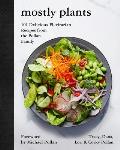
With the fragility and injustices of our country’s centralized food system exposed by the current crisis, the time is ripe for local food systems to flourish, says food deity Michael Pollan — unless they wither on the vine, says other food deity Dan Barber. The way I see it, eating local right now is not just freaking delicious, it’s also my duty. This weekend, I’m going to pair some of the spring bounty from Matsuda Farm with a favorite cookbook, Mostly Plants, by Pollan’s sisters, Tracy, Dana, and Lorrie, and their mom Corky. I especially love the veggie-fried farro recipe. And the salad section of the book. And the family togetherness in its pages. And the image of a nation of eaters rising up as one to embrace and support their local growers and build a more resilient food system. You guys, it turns out tears make a delightful salad topping.
3. Your pick-me-up
- A tree grows in Pakistan. The government of Pakistan is hiring workers who have lost their jobs during the pandemic to plant trees instead — 10 billion trees in five years, to be precise. As one official put it, “Nurturing nature has come to the economic rescue of thousands of people.”
- Farmers’ markets are back. From St. Paul to Sonoma County, farmers’ markets have been cautiously reopening across the U.S. With new features like online ordering, contact-free shopping, and handwashing stations, the markets are an economic experiment and a sure sign of spring, all rolled into one.
- U.S. businesses want to “build back better.” More than 300 U.S. businesses have united to ask Congress for a climate-smart COVID-19 recovery plan. The group, which includes heavy-hitters like Adobe, General Mills, Microsoft, Nike, and Starbucks, is calling for investments in resilient infrastructure, an accelerated transition to a net-zero-emissions economy, and more.
- Recuperación económica. How do you recover from an economically devastating public health crisis? By saying no to coal, gas, and oil. A law recently introduced in Spain directly links carbon cuts with economic growth, making it the latest country to proclaim a goal of reaching net-zero carbon emissions. Olé!
- They put the “I can” in Vatican. Our planetary conundrum can’t be ignored, says the Vatican’s peace and justice office, which has formally invited all Catholic churches, schools, and other institutions to up their sustainability game. By encouraging carbon neutrality, divestment from fossil fuels, and other steps, the call to action seeks nothing less than “radical societal transformation.”
4. Your weekend plans
Take some advice from landscape designer and Grist 50 Fixer Lily Kwong: Start a Freedom Garden, with just some food scraps and water.
Kwong herself is new to growing food. “I have lettuce and leeks regenerating in my dining room right now, and it feels like a small miracle,” she says.
Drawing on the history of Victory Gardens, she is working with her studio to develop resources to share with other gardeners sheltering in place. “At-home gardening is one route to self-sufficiency and freedom during these uncertain times,” Kwong says. “We really want the Freedom Gardens movement to be inclusive of everyone — including those with limited financial and material resources. We hope waves of urban gardeners join us, at any scale!”
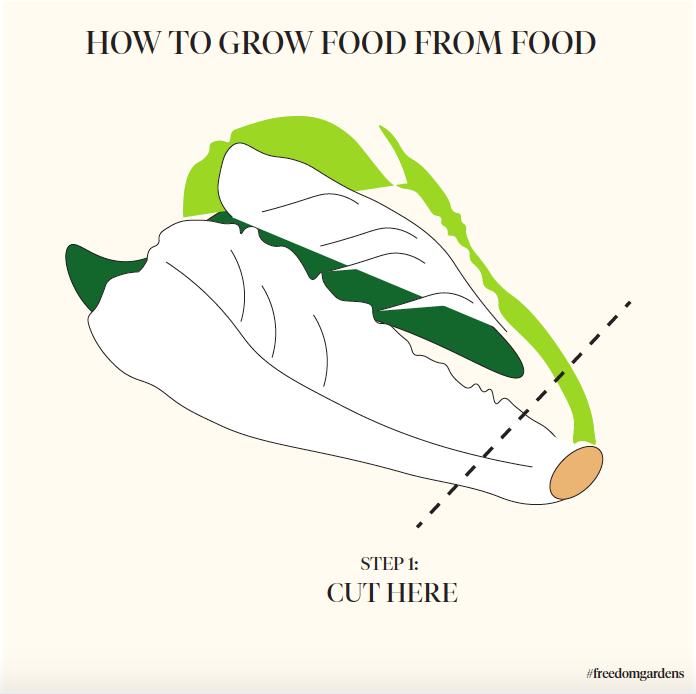
Lily Tagiuri
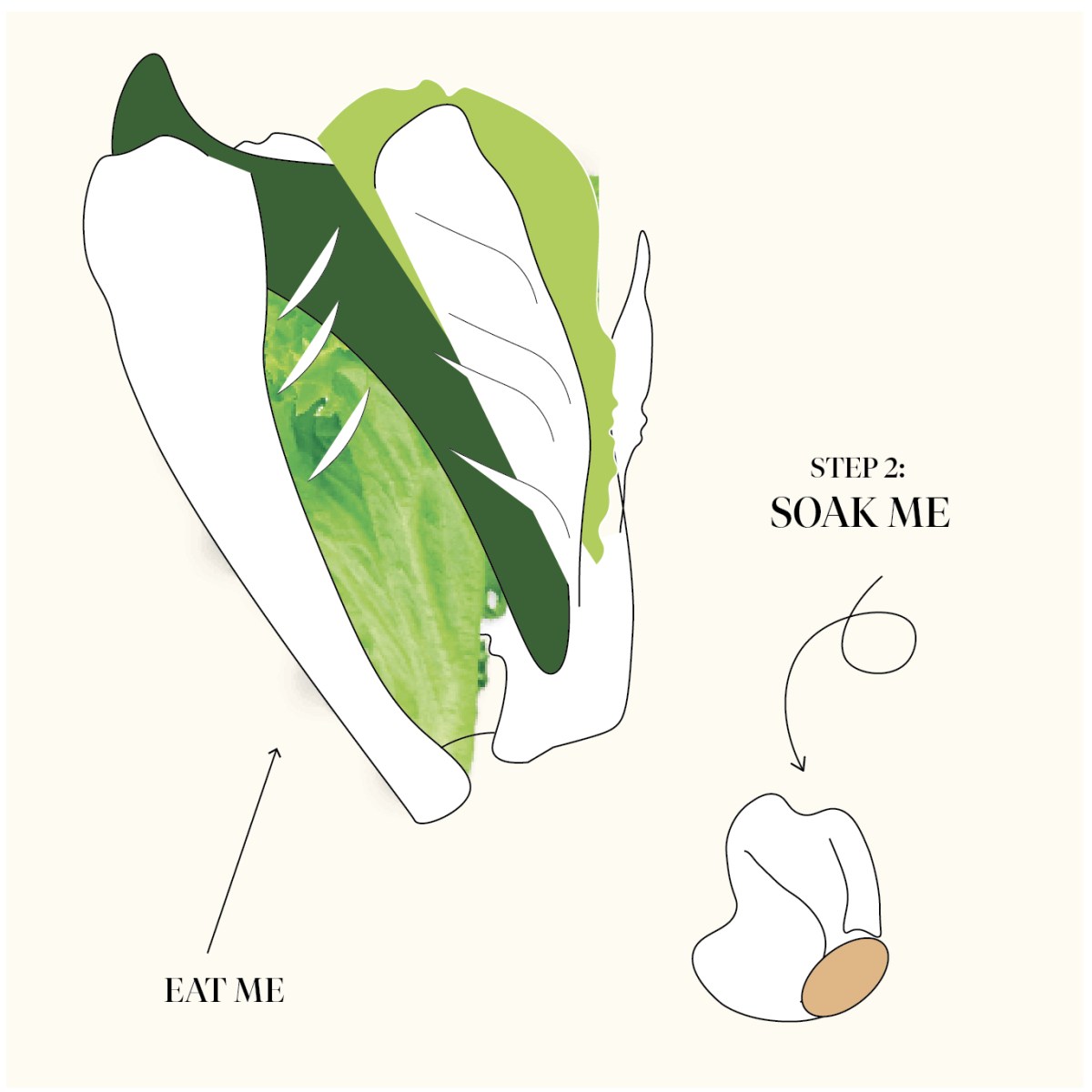
Lily Tagiuri
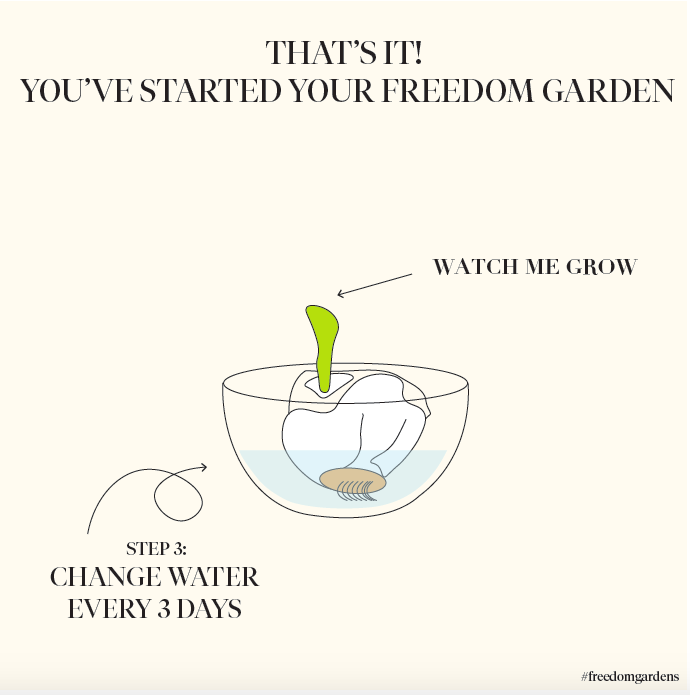
Lily Tagiuri
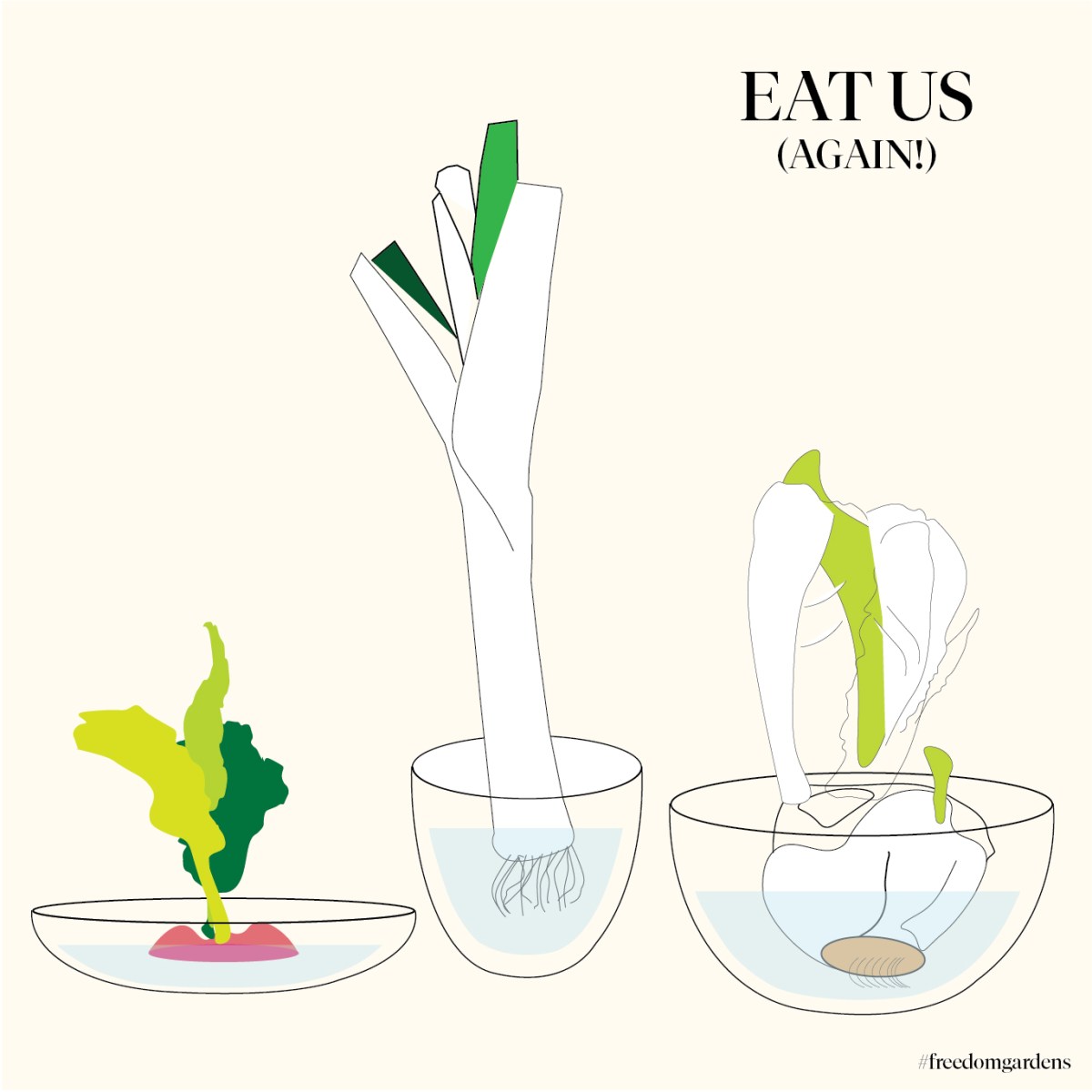
Lily Tagiuri
Follow along @freedom_gardens!



